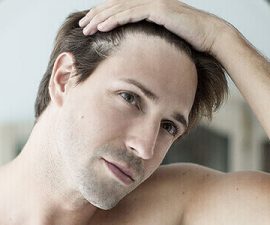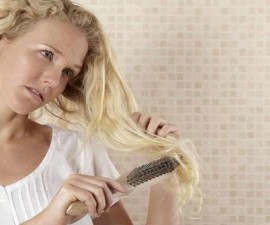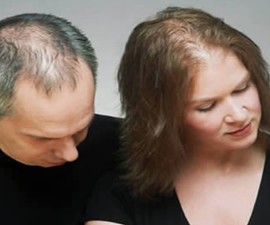… Continued …
Atlantic cedar
It is a kind of tree, which its oil is used as medicine (topical treatment) for some different conditions. It is commonly used to help keep insects away – and one of ingredients for fragrance in perfumes, cosmetics, and soaps.
Sometimes, it is also used for hair loss treatment. Some women apply this oil directly on the scalp to help stimulate hair growth. But does it really work?
Some evidences show that the use of Atlantic cedar oil with other essential oils (oils of lavender, rosemary, and thyme) may help improve and stimulate hair growth. The improvement can be noticed about 7 months after the treatment.
Lavender oil
It is an herb, which has been used to help treat numerous different health conditions such as insomnia, restlessness, depression, painful conditions (like joint pain, sores, and migraine-headache), and some digestive problems (like upset stomach, loss of appetite, bloating, nausea, and vomiting).
Does it work for hair loss, too? Some people apply it to the skin or scalp to stimulate hair growth. As noted before, it may work best if combined with other essential oils.
Zinc
It belongs to a group of ‘essential trace mineral’, which means it is required in small amounts (therefore, zinc deficiency is quite rare). But it is one of the most essential minerals required by the body.
This mineral is required for numerous different functions in the body. In general, it is so important for maintenance and proper growth of the body. It is also involved in the function of wound healing, production of thyroid hormones, blood clotting, immune system, and so on.
The use of zinc supplement is possible effective to help treat hair loss in women. It may also be used together with biotin (see the previous page). In fact, hair loss (especially generalized hair loss) is one of symptoms of zinc deficiency in the body.
Since your body needs zinc in small amounts, it’s better to try first with dietary approach before taking it in supplement.
Some foods high in zinc are seafood, nuts, whole grains, dairy products, and meats. But if you do believe that taking zinc supplement is necessary, talk to your doctor first!
Some lifestyle measures can help, too!
These include:
- Use safe hairstyles! Avoid risky hairstyles such as ponytails, braids, cornrows, or with bad accessories (like clips, rubbed bands, or hairpins – it’s much better to minimize the use of hair accessories).
- Avoid vigorous grooming of the hair! For your healthy hair, limit your brushing and leave it alone as much as you can!
- Let your hair dry naturally after shower! If you need to use a towel to help dry your hair, do it gently. Limit also the use of any heated-hairstyling tool!
- It’s important to wash and shampoo your hair, but don’t do it too much! Shampoo less often to preserve thickness and healthy hair,
- Be careful to any harsh products that can cause hair follicles damage! For instance, if you often bleach your hair or use harmful chemicals to straighten /curl your hair, this can lead to hair follicle damage and thinning hair.
Furthermore, it’s not bad idea to take regular trims. This can help prevent your hair from becoming damaged and developing brittle split ends. Regular haircuts can also actually help for hair growth, because these may help prevent your hair from breaking off and keep it healthy!
- http://www.health.harvard.edu/diseases-and-conditions/telogen-effluvium
- http://www.webmd.com/vitamins-supplements/condition-2099-Hair+loss.aspx




